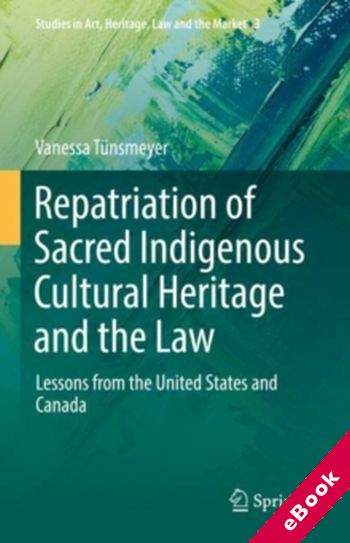
The device(s) you use to access the eBook content must be authorized with an Adobe ID before you download the product otherwise it will fail to register correctly.
For further information see https://www.wildy.com/ebook-formats
Once the order is confirmed an automated e-mail will be sent to you to allow you to download the eBook.
All eBooks are supplied firm sale and cannot be returned. If you believe there is a fault with your eBook then contact us on ebooks@wildy.com and we will help in resolving the issue. This does not affect your statutory rights.
This book examines the ways in which law can be used to structure the return of indigenous sacred cultural heritage to indigenous communities, referred to as repatriation in this volume. In particular, it aims at developing legal structures that align repatriation with contemporary international human rights standards. To do so, it gathers the most valuable lessons learned from different repatriation laws and frameworks adopted in the United States and Canada. In both countries, very different ways of approaching repatriation have been used for several decades, highlighting the context-dependent nature of repatriation.
The volume is divided into four parts, looking first at international law, then at the national legal landscape in the United States, followed by Canada, before the different repatriation models are evaluated against the backdrop of human rights law standards. Emphasis is placed not only on repatriation-specific legislation but also on the legal context in which it was developed and operates. In turn, the fourth part develops various models on the basis of these experiences that can be aligned with contemporary indigenous and cultural rights. The book ends by considering the models' suitability for international repatriation and the lessons that can be learned from them.
The primary audience includes those addressing the legal hurdles to repatriation, be they researchers, policymakers, communities, or museums.